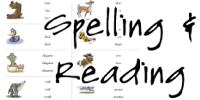You’d imagine that teaching English as a foreign language here in Israel is enough of a challenge on its own.
But when your students come from backgrounds as varied as Ethiopia, Russia and Europe as well as Israel and amongst those from each country are several ultra-orthodox students who do not watch television, use the internet, read regular daily newspapers nor popular literature, and you realize that we’re talking about major cultural differences as well.
This was first brought home to me when doing practice exam papers.
During the year I can more or less choose the material I use, but the students have to get used to the type of exam they’re going to have to take, so towards the end of the year we do old exam papers …..and what a problem they are.
“Teacher who or what is Harry Potter? A person? The writer? The passage here talks about him as if I’m supposed to know. And there are other words here that aren’t in the dictionary at all” ( could she mean muggles?)
“Teacher, what is The Olympic Games? Is it a children’s game? Why are there dates for the game can’t you play it when you want?”
“ What is a website teacher?”
“ What is the greenhouse effect? I looked it up in the dictionary but then I didn’t understand the definition it gave?”
One part of me enjoys teaching my students about daily things we take for granted, modern ecological and environmental issues and advances in hi-tech.
But another part feels it’s unfair that even if their grasp of the English language is good and they are working very hard, they could fail their exams simply because the topic in their comprehension paper ( which is the main section of the exam) is one about which they know nothing and this inevitably hinders their understanding of the text.
I have spoken to the powers-that-be who write the exam papers asking for more general topics, but they claimed that if we stick to totally neutral topics such as family, food or education it is simply too limiting ( not to mention boring).
So if anyone out there wants to send me a short definition/ synopsis of some recent trends or moderns issues, in relatively simple English, I shall be happy to use them in my future lessons.







2 comments:
I think it's like a cheloni kid wanting to take exams in Hilchos Mukza with no knowledge or experience of Shabbos whatsoever.
You cannot really learn English devoid of its culture.
Yes,Anonymous, but the difference is that there is no logical reason why anyone would want to know about 'hilchot mukza' if they aren't interested in Shabbos and if they did so it would be purely out of choice.
But students have to learn English to pass Bagrut / to get a place in university /to get a job and I don't think that knowledge of literature ,sports and other aspects of the culture should be a prerequisite for passing a language exam.
Post a Comment